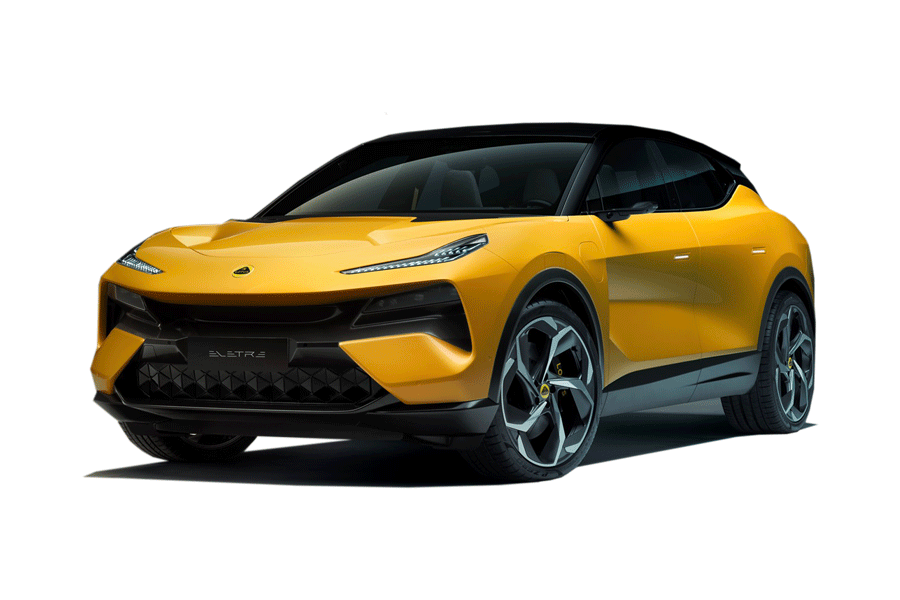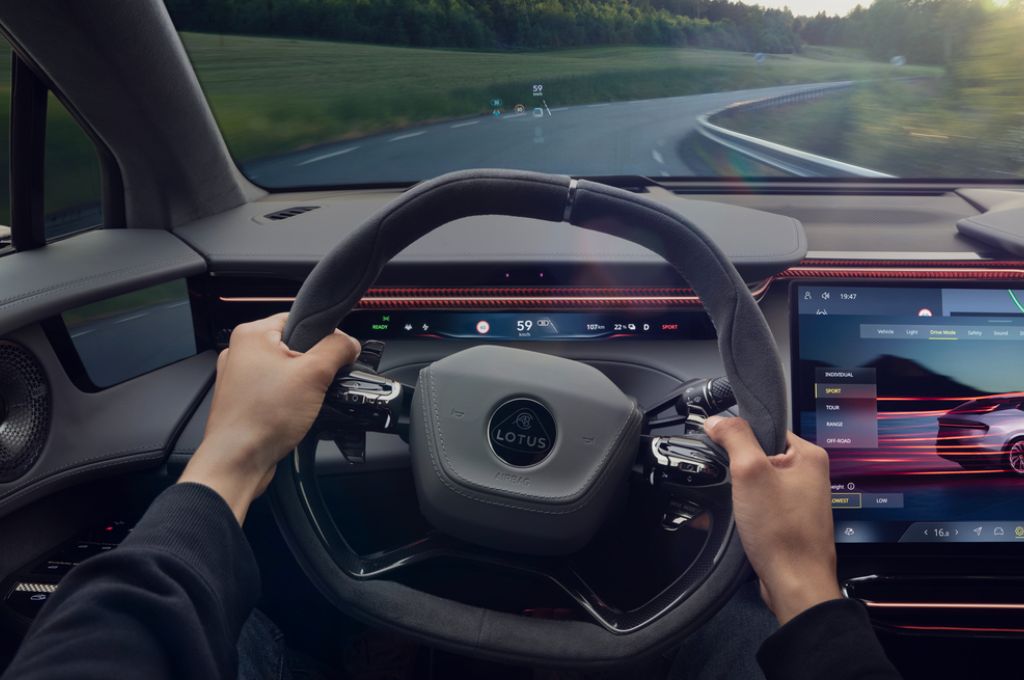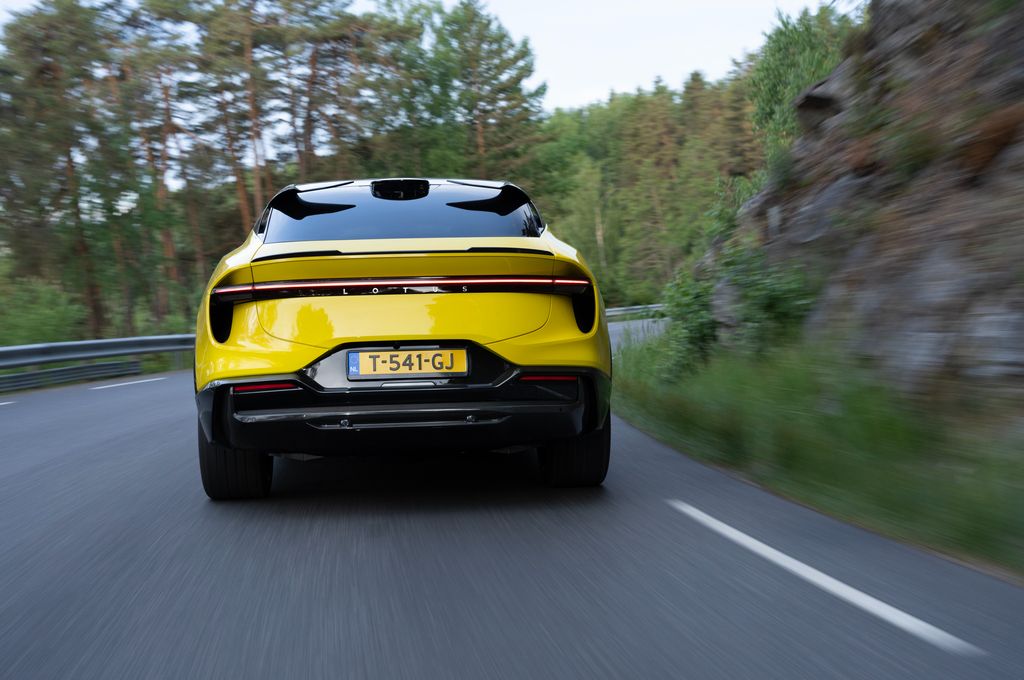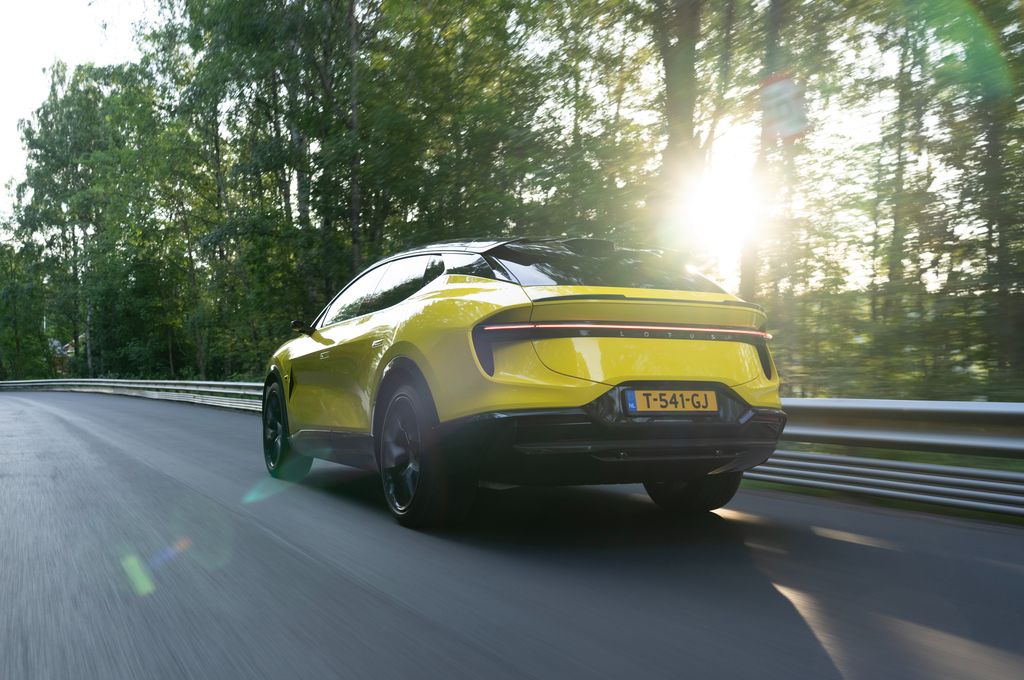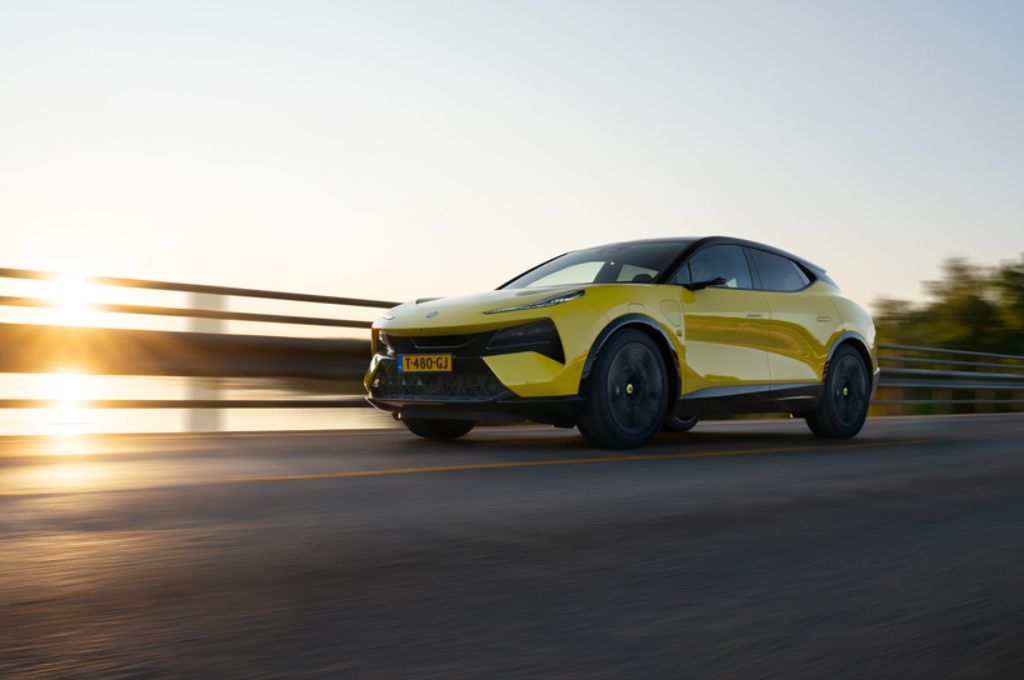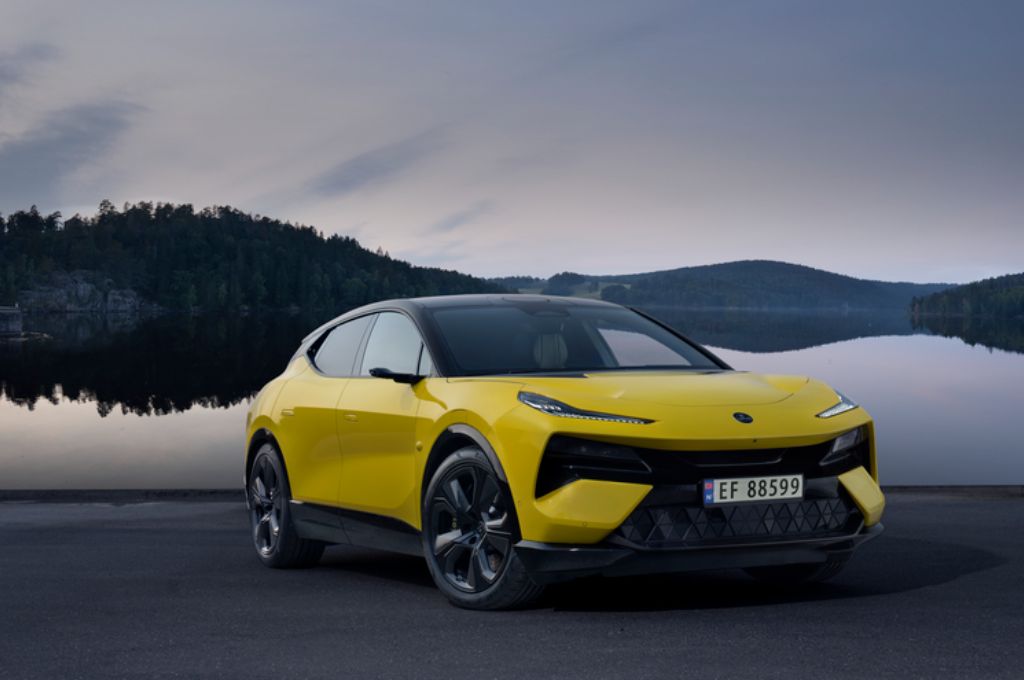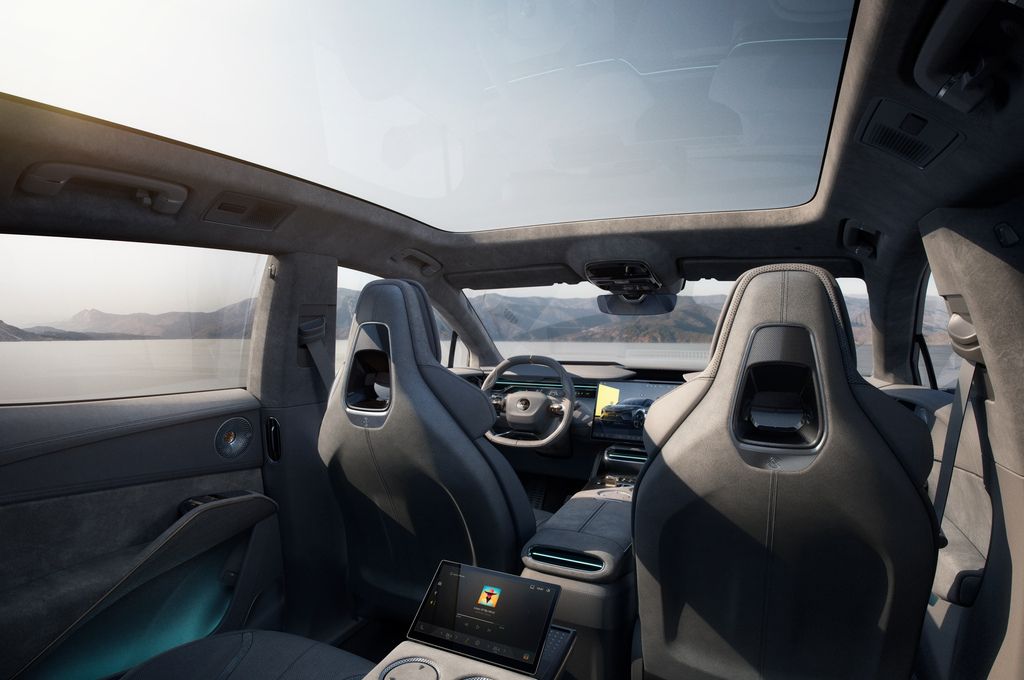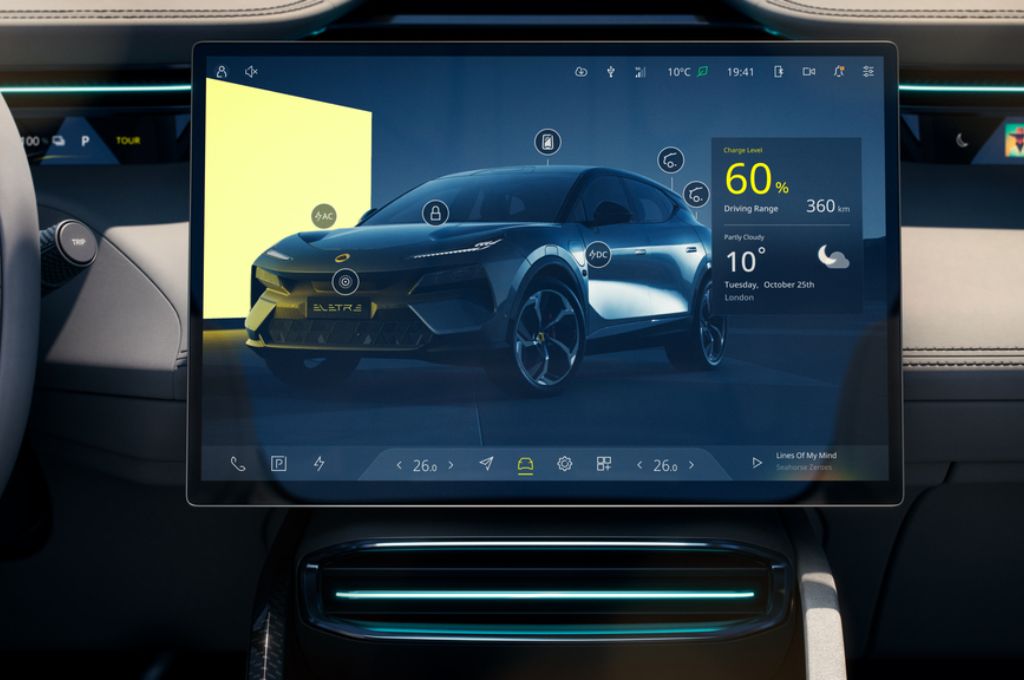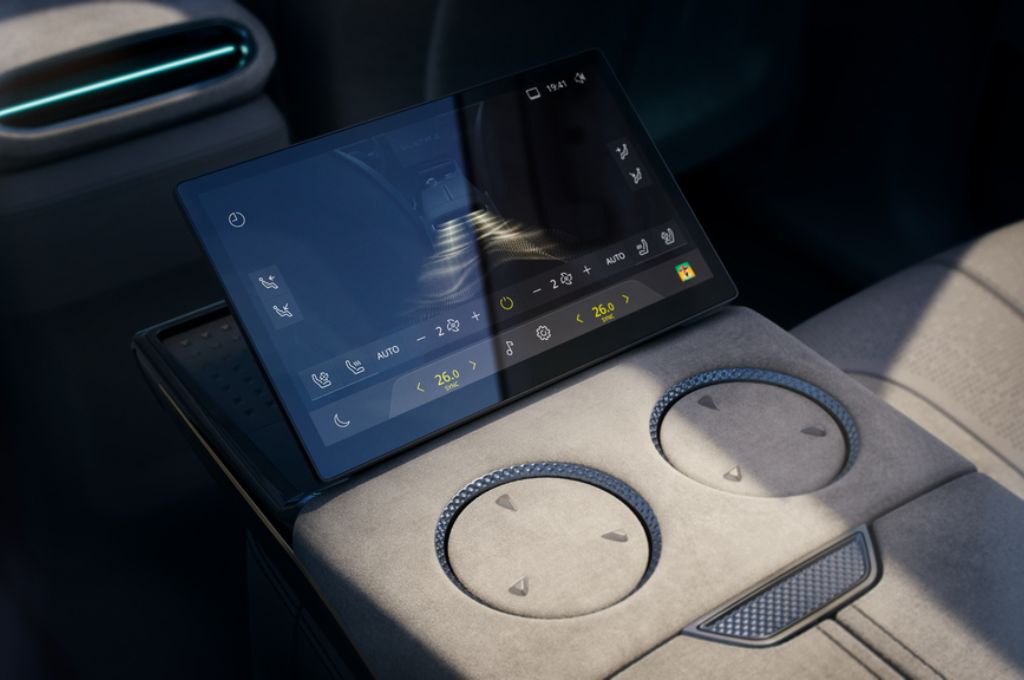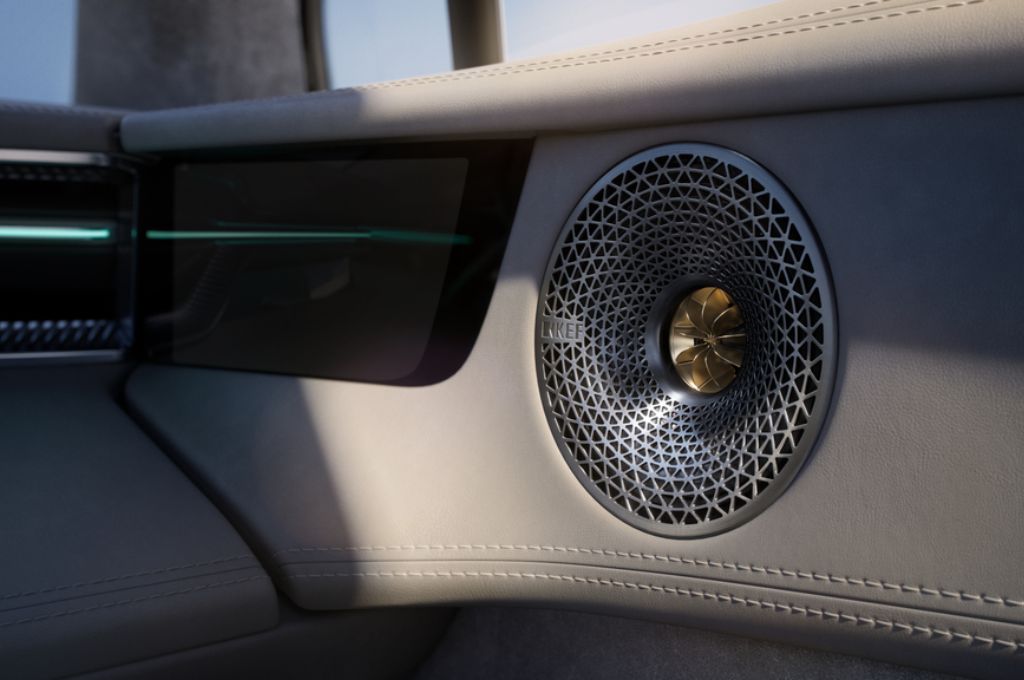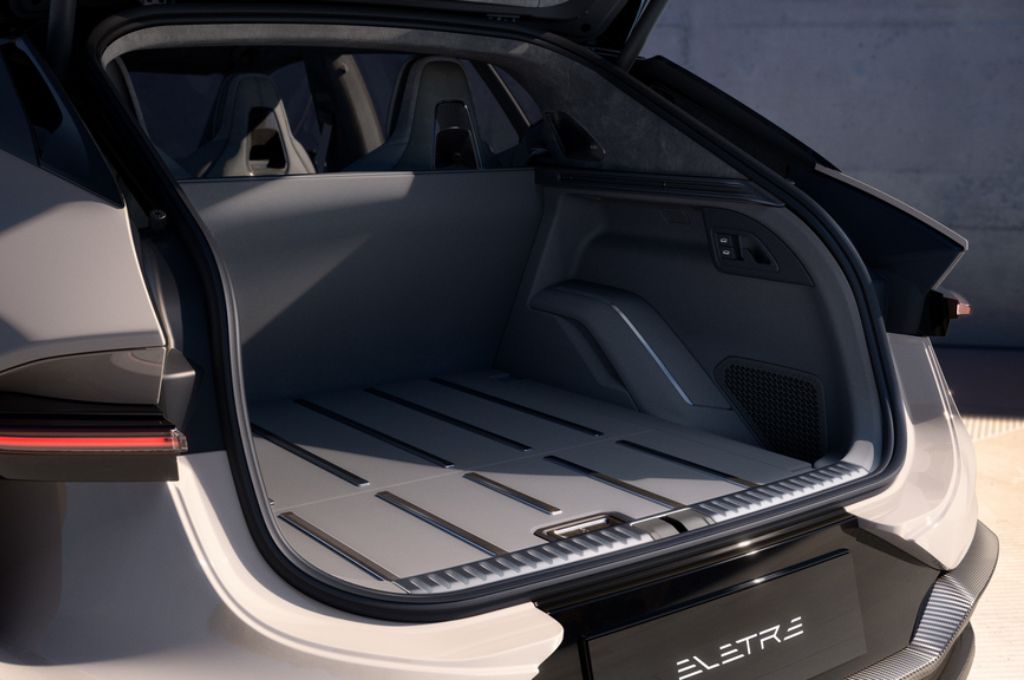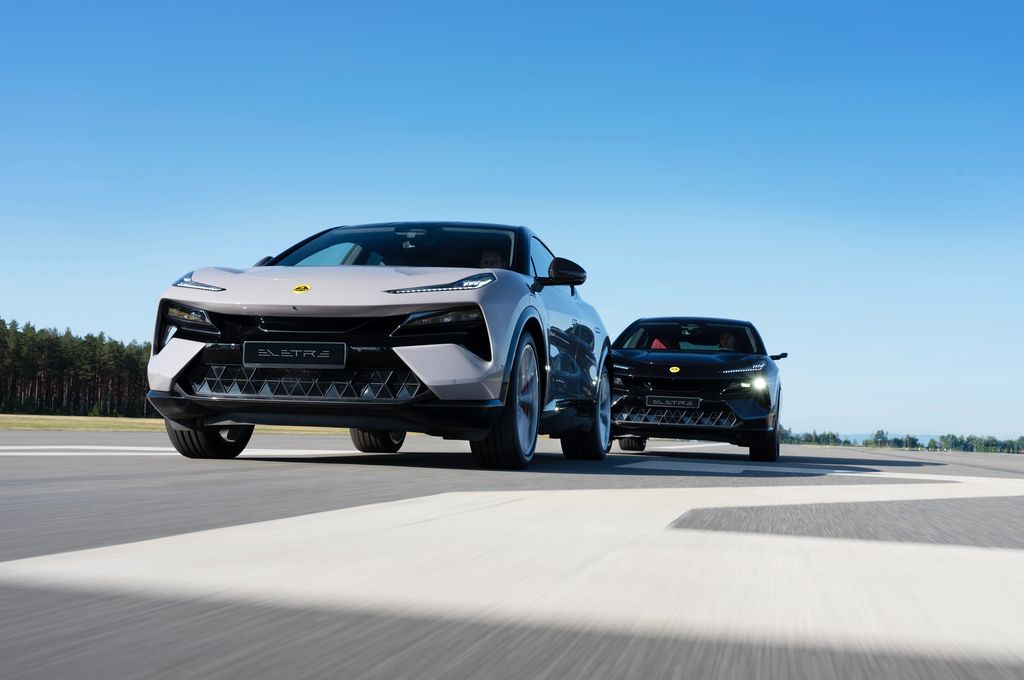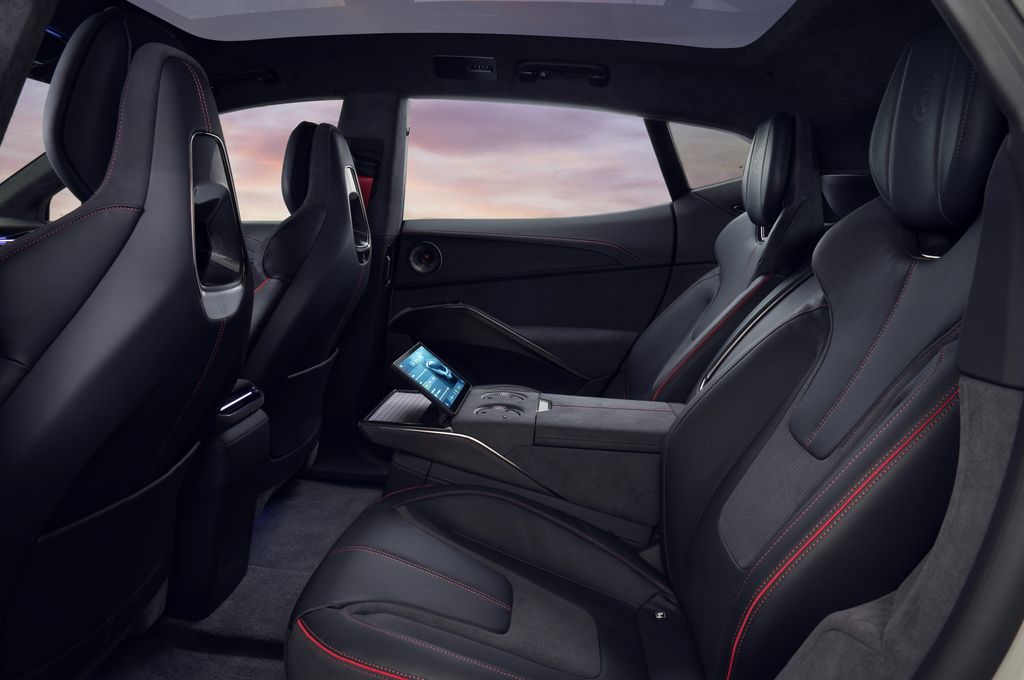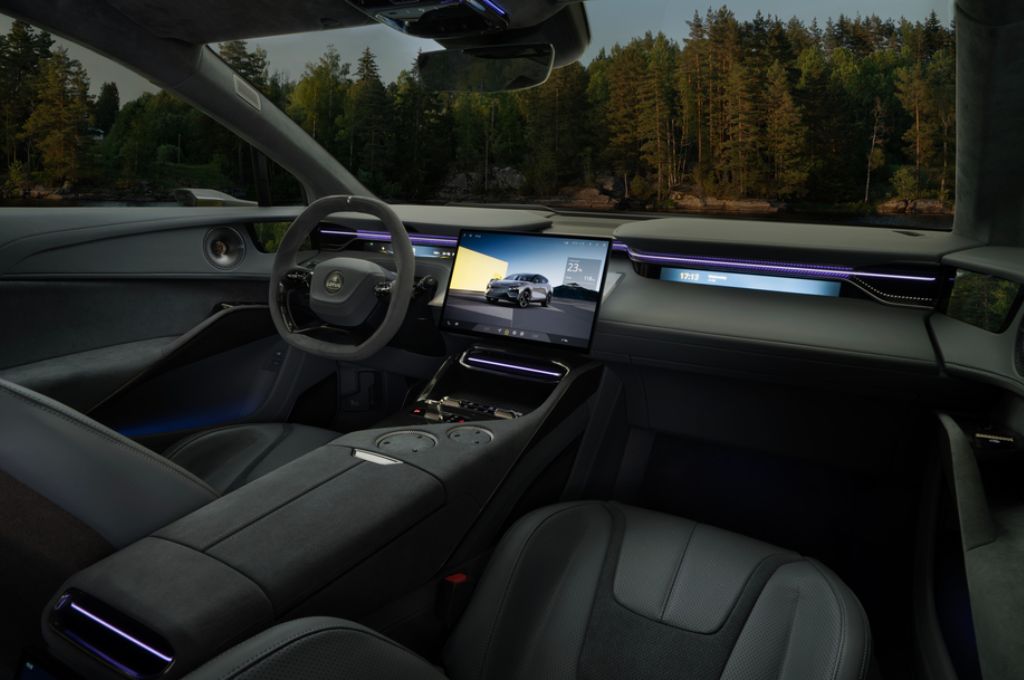The brand’s first all new production model to be funded and developed under Geely ownership is the Eletre – a five-seater, all-electric SUV that will usher in a new generation of battery-powered Lotuses. Big, brash and loaded with technology, it’s a world away from the stripped-back two-seaters that made Lotus a household name. But times change, and as the success of cars like the Porsche Cayenne and Lamborghini Urus continues to show, big supercar SUVs are big business.
Lotus Eletre design
Lotus rather fancifully describes the Eletre as a ‘Hyper-SUV’, but it’s really just a large five-seater. Unfortunately for Lotus, it’s car that doesn’t photograph particularly well. In the metal, the Eletre is significantly more elegant than the pictures suggest. The brand describes the design as porous - which means the wings have large voids that allow air to flow over hot bits (like the brakes) without the need to add draggy air ducts. It’s still a vast thing at 5.1 metres long, 2.2 metres wide and just over 1.6 metres high, but the designers have done a decent job in hiding its bulk. The rear end is probably the mot successful in terms of design thanks to a striking light bar that spans the width of the tailgate and highlights the rear air slats on either side. Customers can choose from an almost bewildering array of colour and wheel combinations, including Lotus’s famous custard yellow. Due to the size of the body, the Eletre looks best on the largest 23-inch wheels, and if it was me choosing the spec, the gloss black designs would be the ones making the final order.
Inside, the Eletre introduces a number of features that will be new to those who have owned older Lotuses. Comfort and space are arguably the main ones, along with a decent sound system and a rattle-free interior. The Eletre delivers a quantum leap forward in terms of both material and build quality. Customers can choose from six different interior configurations will all featuring high end materials such as Alcantara and leather. Colours range from the timeless black and grey of our test car up to an eye-catching fuscia pink if you’re feeling brave.
The seats strike the perfect balance between sportiness and comfort, offering just enough lateral support to hold you in through corners. Selecting Sport mode actuates two additional side bolsters that tighten the grip on your torso, which is a clever touch. The driving position is good thanks to a power adjustable steering column and a vast range of adjustment on the seats. However, those with really long legs like me (6ft 5in at time of writing) will yearn for a little more travel on the steering column to move the steering wheel further away from your knees.
A high-set centre console houses a couple of cup-holders that are revealed when you press down their tops while a phone charging pad sits just below the central air vent. The doors feature deep storage pockets and reinforce the impression that the Eletre was designed to be a practical day-to-day car rather than a weekend play-thing.
In the rear, customers can choose between a three seater bench or a four-seater layout that features two individual sports seats either side of a large centre console. Thanks to the Eletre’s vast. three metre wheelbase and flat floor, the rear of the car feels remarkably spacious. Our car came with the four-seater layout which offers a genuine first-class passenger experience. The seats come with similar levels of adjustability as those in front and offer exceptional support. The centre console is home to (even more) storage, along with a pop-up infotainment display that allows passengers to alter their seating position, move the front passenger forward and control the climate and audio functions.
Lotus Eletre boot
It comes as little surprise to learn that the Eletre has the biggest boot of any Lotus, with 688 litres of space on offer. A useful secondary storage area for cables is accessed by lifting the edge of the boot floor while a 46 litre frunk is big enough for cable storage for those who prefer to keep them up front. Opt for the three-seater bench layout and the boot space can be extended to 1,523 litres by folding the rear seat backs.
Another neat touch is a lowering system that takes full advantage of the Eletre’s air suspension. Press a button on the side of the boot lining and the rear of the car sinks down 75mm to deliver a lower load lip. It’s a slick system and further proof that Lotus has really considered the needs of its potential owners.
Lotus Eletre infotainment
Given that Geely already has a perfectly fine and usable operating and infotainment system in its inventory (in the form of Volvo and Polestar’s excellent Google-based system), it comes a surprise to learn that the Eletre has its own bespoke system developed in-house. Dubbed Hyper OS, it’s part of a wider computing system that will eventually run the car’s LIDAR-based self-driving systems. Powered by new NVIDIA processors (that Lotus reckons is at least twice as fast as near rivals), it has been designed to deliver a seamless and future proof experience for drivers.
In use, the system works well. Some of the animations add complexity where its not needed, but generally the user experience is a good one. It flicks between screens without delay and the layout is logical enough for most owners to get familiar with it after a few drives.
Lotus is particularly proud of the sound system offered in the Eletre. It persuaded KEF to develop its first automotive system and based on a quick demonstration at the launch venue, audiophiles will not be disappointed. The entry-level model gets a 1,400 watt system while the S and R gain a more powerful 2,200 watt set-up. Both are compatible with Dolby’s Atmos system for true surround sound. To take advantage of the latter, users need to use the Tidal streaming service, although Dolby bosses are confident that Spotify will add the tech to its service in the near future. At launch, the system won’t feature Apple CarPlay or Android Auto connections, but bosses say that this will be introduced later this year.
Eletre battery, charging and range
All three Eletre models come with a 112kWh battery pack as standard. Like the Porsche Taycan (one of its key rivals), the Lotus features an 800 volt electrical system that allows the Eletre to rapid charge at speeds of up to 350kW. Lotus claims that the pack is capable of accepting charge at even higher speeds and offers Chinese market models with a peak speed of 420kW. However, the specification of the European CCS connector means that 350kW is the maximum speed any EU-spec car can hope to achieve.
Lotus claims a 10-80% charge time of around 20 minutes for a car hooked up to a 350kW charger, and reckons that in peak conditions it has an average charge speed of 210kW over the course of a charging session. All three models come with a 22kW onboard AC charger as standard, which delivers a six hour empty-to-full charging session when connected to a three-phase output.
The Eletre and S models both come with a WLTP figure of 373 miles while the more powerful R comes with a range of up to 304 miles. However, all those figures were achieved on 20-inch wheels – which don’t feature as standard on any models. Customers wanting to get nearer to the WLTP figure can order 20s as a no-cost option.
Eletre driving experience
Transplanting the traditional Lotus driving experience into a 2.4 tonne, high-riding SUV was never going to be an easy task, but, remarkably, Lotus’s engineers have largely achieved it. The steering is precise and perfect weighted while the throttle response is every bit as eager as it is on the brand’s traditional sports cars.
The Eletre is a fine example of how technology and good old ‘seat of the pants’ fine-tuning can deliver a great drive. Our S model was equipped with an active anti-roll rear suspension and four-wheel steering – two advanced bits of trickery that cleverly mask the Eletre’s bulk and weight. Neither are noticeable in operation, but the contribution they make to the overall driving experience is remarkable. The Eletre changes directions with the ease of a car weighing half as much and can be threaded through a series of bends without the tyre scrub and understeer that affects most other big electric SUVs. The standard air suspension has been perfectly set-up and works in harmony with all the other systems to deliver a comfortable drive. Our only slight niggle is the low-speed ride, which proved somewhat crashy over speed bumps.
Drivers can choose between five driving modes, from Range, which dulls the throttle to reduce the power draw from the battery up to Track (R model only), which unleashes full beans to both motors. I found that Tour and Sport delivered the best balance of performance and comfort, although Range was pretty acceptable if you were looking to extend your range.
Both the entry-level and S model generate 603bhp while the R has a combined output of 905bhp. The two lesser powered models can sprint from 0-62mph in 4.5 seconds while the R can do the same test in just 2.9 seconds. Remarkably, the Eletre doesn’t feel like an accident waiting to happen. The throttle modulation is sophisticated and perfectly judged. Given that 25cm of pedal travel is all that separates your right foot from 905bhp, the Eletre is as docile as you want it to be. Indeed, it’s as happy pootling around town as it is tackling corners on a racing track. Sure, there’s an abundance of power when you really want to get moving, but you never feel as though you’re about to step on a land mine when you hit the throttle.
Completing the dynamic package is a braking system that feels more than up to the job. All three models come with steel discs as standard, but R buyers can opt for a ceramic disc set up (with 10 piston callipers) as an option. The standard items proved fade-free during our (admittedly rather tame) driving session, but as with the other controls, it was the feel and feedback that stood out. Powerful without feeling grabby, they never feel overworked or underpowered. As with the throttle and steering, they perfect perfectly judged.
Lotus Eletre verdict
The Eletre feels a very polished package, honed and refined by the same people that have honed and refined every other modern Lotus. The cleverness isn’t just in the tech, it’s in the way it works seamlessly to deliver a familiar Lotus driving experience. There will, of course, be plenty of traditionalists who will smart at the very thought of Lotus building a car like this. However, the reality is that big SUVs remain big business and effectively give brands like Lotus the cash and the know-how to develop other models. The future looks bright.









